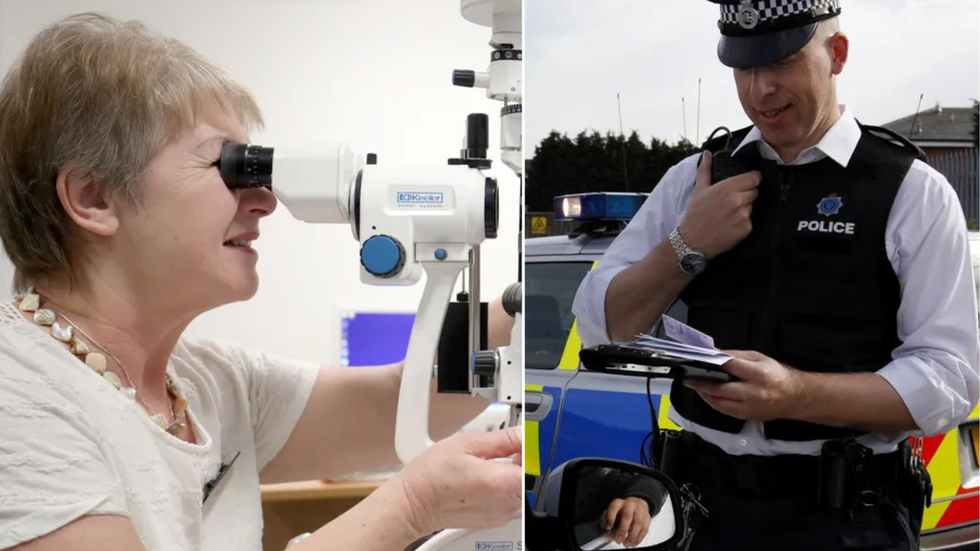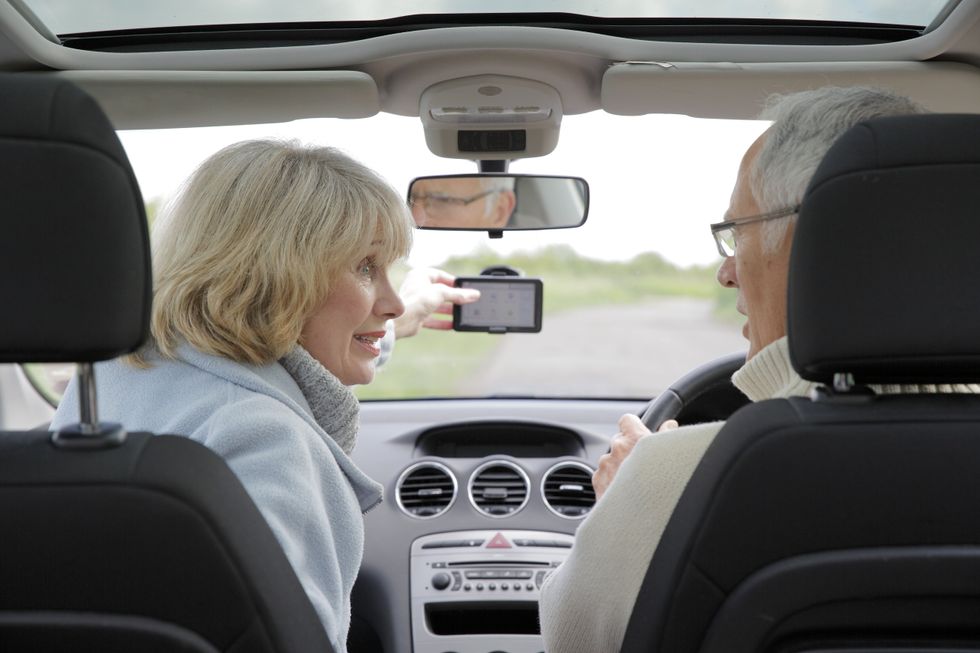Drivers have been warned they could face a £1,000 fine if they fail roadside eye tests, as police intensify their crackdown on motorists with poor vision with elderly drivers particularly impacted.
Car insurance experts have urged road users to prioritise regular eye testing and maintain good eye hygiene to avoid getting slapped with penalties.
The warning comes a month after the National Police Chiefs’ Council began conducting roadside eyesight screening tests on drivers which prompted nationwide action.
Since then, police have been conducting more roadside vision checks, with drivers risking substantial fines or potential loss of their licence if they fail to meet required standards.
Do you have a story you’d like to share? Get in touch by emailing[email protected]

The National Police Chiefs’ Council is aiming to crack down on the number of road accidents
PA/GETTY
Motorists who fail to inform the DVLA about medical conditions affecting their driving could be hit with fines of up to £1,000.
The scale of the problem is significant, with statistics showing that 3,000 people are killed or injured each year by drivers with poor eyesight.
Experts have further emphasised that maintaining good eye health is not just about personal safety, but a crucial responsibility to all road users.
In a bid to prevent roadside accidents, experts have shared some tips. Making changes to daily habits, for example, can have a significant impact on eye health and driving safety.
This includes improving diet and quitting smoking, both of which can affect eyesight quality. Winter conditions also pose additional challenges for drivers, making proper vision even more critical for road safety.
Ian Wilson, managing director of Tiger.co.uk, said: “These strict regulations and new roadside checks are designed to increase road safety and make sure everyone on the road is fit to drive, with penalties ranging from £1,000 fines to driving bans.
“Maintaining good eye health is essential for driving and key to passing these roadside eye tests. Regular eye tests can detect vision loss and eye problems earlier, while also ensuring you have the correct prescription for glasses or contact lenses.
“It’s also important to have a spare pair of glasses in your glovebox for emergencies and sunglasses with the correct lens for driving – winter sun can be dangerous behind the wheel if you aren’t prepared.”
Wilson also stressed that regular eye tests are crucial for maintaining vision health, with experts noting that 75 per cent of vision loss cases could be prevented through early detection.
Quality eyewear is equally important, with recommendations to include blue light and UV-blocking features in prescription glasses.
A nutrient-rich diet containing vitamins A, C and E can help prevent eye damage and deterioration. Proper eye hygiene practices are essential to prevent infection and complications.
This includes washing hands before touching eyes, proper makeup removal, and thorough cleaning of contact lenses, all of which help prevent bacterial contamination and maintain optimal eye health.
LATEST DEVELOPMENTS:
- Vauxhall introduces new ‘luxury’ car tax benefits for electric vehicle models despite axing 1,100 jobs
- M62 chaos: Drivers urged to avoid key motorway route amid huge lorry blaze – ‘It’s not safe to allow traffic’
- Millions of drivers risk car insurance havoc within weeks as Britons ‘won’t be compensated’ for claims

Older motorists may struggle more with their eyesight and hearing
GETTY
Experts also detailed how these preventative steps are particularly important for drivers who want to ensure they meet roadside vision test requirements.
Professor Julie-Anne Little, past chairman of the AOP and research optometrist, explained: “Sight changes are gradual which means that many drivers are unaware that their vision has deteriorated over time.
“But having poor eyesight has been shown to slow reaction times and the ability to drive safely – and it doesn’t take much for one mistake to result in a serious collision with catastrophic consequences.”